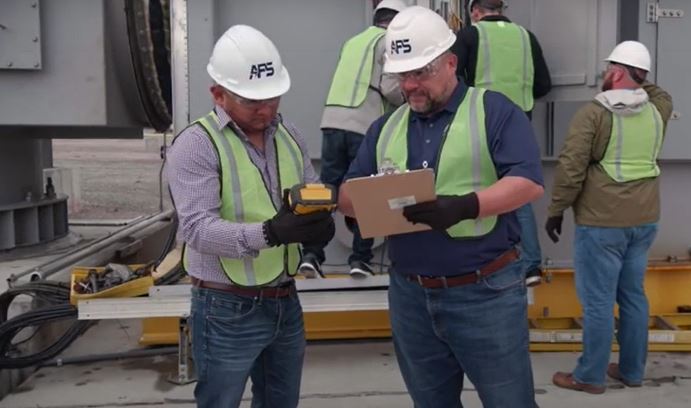
The deep hum of a power plant, the synchronized motion of turbines at a wind farm, and the steady churn of industrial machinery—behind all these mechanical marvels stands an essential but often unsung hero. Amid the towering turbines and intricate systems powering our world are millwrights, the skilled tradespeople who ensure machinery runs smoothly. In the power and energy sector, where precision and reliability are critical, millwrights are indispensable as they install, maintain, and repair vital equipment. This guide takes you through the multifaceted millwright career pathway from entry-level to mastery shining a spotlight on the profession’s importance and the opportunities it offers.
What is a Millwright?
A millwright is much more than a mechanic; they’re the “master of machines.” These skilled tradespeople specialize in working with heavy machinery, often in high-stakes environments. Precision is their forte—they handle the installation, maintenance, and repair of complex systems with tools and techniques that demand unmatched accuracy.
The Role in Power & Energy
Within the power and energy industry, millwrights are indispensable. From nuclear plants to wind farms, these professionals work on critical equipment such as turbines, generators, pumps, and conveyor systems. For example:
- Turbines: Millwrights align, assemble, and balance turbines to ensure peak performance and operational safety.
- Hydroelectric Systems: They maintain and repair machinery responsible for harnessing energy from water.
- Wind and Solar Power: Millwrights play a key role in installing and maintaining the towering equipment at wind and solar sites.
Choosing a millwright career means taking on high-stakes, hands-on roles that directly impact safety, efficiency, and reliability in the power and energy sector. The stakes are high in this field. Downtime caused by machinery failure isn’t just costly—it can impact safety and energy production for thousands of homes and businesses. That’s why millwrights play an irreplaceable role, combining knowledge, skill, and attention to detail to keep systems running efficiently.
How to Become a Millwright: The Path to the Trade
If the idea of starting your millwright career sounds appealing, the good news is that it’s accessible to those willing to dedicate themselves to learning the trade. Here’s an overview of the path to becoming a millwright.
Laying the Foundation
The first step in launching a millwright career is obtaining a high school diploma or GED. Since precision and technical knowledge are essential, subjects like math, physics, and mechanical drawing are highly valuable. These foundational skills will help you succeed in later training phases.
Apprenticeship Programs
The most common route to advancing your millwright career is through an apprenticeship. These programs combine paid, hands-on training with classroom instruction. Most apprenticeships last four to five years and are supervised by experienced journeymen who mentor trainees throughout the process.
During an apprenticeship, aspiring millwrights learn core skills that define the trade:
- Blueprint Reading: Understanding technical diagrams is crucial for machinery installation.
- Precision Alignment: Small misalignments can lead to equipment failure, so accuracy is paramount.
- Welding and Fabrication: Many projects require custom modifications or repairs.
- Hydraulics and Pneumatics: Mastering these systems helps millwrights diagnose and repair a wide range of equipment.
Certifications
While an apprenticeship provides the bulk of training, certifications can bolster your career credentials. Achieving status as a millwright is a significant milestone and demonstrates mastery of essential skills. Additional certifications, such as those in safety or specialized equipment, further increase career prospects.
From Journeyman to Master: Expanding Your Millwright Career
The role of a millwright doesn’t end at the completion of an apprenticeship. For dedicated professionals, opportunities for millwright career growth abound.
Advanced Training
Continuing education is vital for any career, especially to keep pace with new technologies and industry trends. Advanced certifications not only increase earning potential but also improve competence with cutting-edge machinery.
Specialization Opportunities
Experienced millwrights can further their millwright career by specializing in specific areas.
- Turbine Specialist: This field involves precision alignment and balancing of high-powered turbines, critical in power generation facilities.
- Advanced Manufacturing Expertise: Millwrights with experience in assembling and maintaining high-tech manufacturing equipment, such as robotics and precision machinery, are increasingly sought after in the evolving industrial sector.
Leadership Roles & Mentorship
Seasoned millwrights often step into leadership roles, such as foreman or project manager, overseeing teams and ensuring projects are executed efficiently. Many also give back by mentoring apprentices, passing on their knowledge and ensuring the next generation is equipped to carry the trade forward—a meaningful way to leave a legacy in your career.
Partnering for Success: For Your Millwright Career
For millwrights to thrive in their Millwright Career, connecting with the right opportunity is essential. That’s where firms like APS Solutions come in. For over 25 years, APS Solutions has specialized in pairing skilled tradespeople with projects in the power, energy, and heavy industrial sectors. We serve as a bridge between top-qualified talent and employers in need of experienced professionals. Our focus on safety, long-term relationships, and workforce development positions them as a leader in staffing for complex and high-stakes projects (Power & Energy Staffing Insights). Whether you’re looking to build your millwright career or interested in fossil fuels, nuclear, or renewable energy, we can guide you to the right placement.
Millwright Jobs We Staff:
- Conveyor Millwright
- Mechanical Steam Turbine Millwright
- Millwright Helper
- Millwright
- Mechanical Gas Turbine Millwright
- Precision Gas Turbine Millwright
- Precision Steam Turbine Millwright
Here at APS Solutions we invest in our employees, offering not just jobs but resources for career growth. Our clients and career candidates regularly offer positive testimonials, emphasizing APS’s role in helping them succeed (read real reviews and success stories). If you’re ready to begin your millwright career—or take the next step—they are an invaluable resource in ensuring you’re placed where you can excel. You can explore current opportunities and learn more about the benefits of partnering with APS Solutions.






